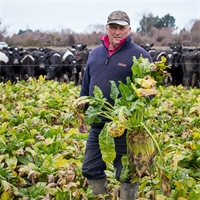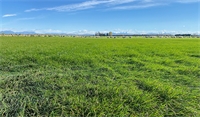03Aug
Regional fuel tax should be put on hold
Regional fuel tax should be put on hold
Words by Mike Chapman, CEO of Horticulture New Zealand, Image supplied by Horticulture New Zealand.
On 1 July 2018 the first regional fuel tax (RFT) allowed under law came into force in Auckland – and confusion reigned. The law was passed only a matter of days before on 26 June 2018, and how it would work in practice for growers and farmers in the area—and beyond once other regions adopt the tax—was unknown.
Horticulture New Zealand had heard Ministers, and Members of Parliament who had been on the Select Committee considering the law, publicly say that it was never intended to capture off-road, or behind the farm gate, fuel use. Yet once passed into law and with its regulations now published, it does capture this use and growers and farmers must engage in a complicated online rebate system to get back the RFT they shouldn’t have had to pay in the first place.
HortNZ is trying to get the gap between what Ministers said they intended and the reality of the law closed. Why? Because unlike a lot of farms, for horticulture we are talking about considerable numbers of vehicles and machinery used to produce healthy food for New Zealanders, both in Auckland and beyond.
In the Auckland region there are more than 400 growers—feeding the Auckland population of 1.5 million people. For one grower alone, the stock of mainly diesel-powered vehicles and machinery used off-road includes around 100 tractors, as well as self-propelled harvesters, self-propelled sprayers, two and four-wheel motorbikes, generators, irrigation pumps, and flood pumps, using about 1 million litres of diesel off-road per year.
HortNZ contends the process has been so rushed to meet Auckland Mayor Phil Goff’s announced 1 July deadline for a RFT that the full democratic process was unnecessarily truncated and the end-users are the losers. This tax is designed to improve Auckland’s transport system, and therefore must exclude vehicles not used on those roads.
The New Zealand Transport Agency (NZTA), which will administer the RFT on behalf of Auckland Council, hasn’t dealt with how users will claim a rebate adequately. The online rebate system will not even come into force until October 2018, yet growers will have been paying RFT on off-road fuel use since 1 July. What we have seen so far, only from persistent asking, is a rebate system that is overly complicated and is in fact, designed for fuel excise duty (FED), not RFT.
So growers have to start a system, not knowing how it works. They’ll be paying the tax plus GST for three months before they can claim the rebate, and that money will be sitting in a Government bank account earning interest. It’s very rushed and hasn’t really been thought through, in that you normally establish the full system, test it, and you roll it out to people and explain how to use it. None of that has happened.
This is an example of how not to treat stakeholders, that’s for sure. The Government has spent seven figures developing a rebate system without ever talking to future users, or considering that they shouldn’t have to pay the tax in the first place.
This will affect growers’ businesses and costs considerably, to the point of hundreds of thousands of dollars a year. Those costs will be passed on to consumers, making healthy food more expensive at a time when many households are already struggling.
HortNZ will continue to work with government officials who are designing the rebate system—but we have made it clear that we are still pushing hard for exemption for off-road vehicles. In the meantime, we believe the Government should put the RFT on hold until all of the details are sorted, and everyone is clear on how it will work.
It is not fair or equitable to have a tax in place before the system to administer it is up and running.
Related

Ealing farmer Shayne Jones of Farmleigh Limited has taken out the best fodder beet crop in this year...
Read More

In New Zealand’s dynamic farming landscape, staying ahead means embracing innovative solutions, esp...
Read More

A winter warmer that is sure to please, this lamb pizza is garnished with the delectable combination...
Read More

“Covid-19 was an unprecedented obstacle this year, but as a Ruralco family we managed to overcome i...
Read More

The next three months is very important in getting it right with your agri-chemical applications to ...
Read More

Fall into autumn with this delicious Baked Brie recipe. The perfect accompaniment to any gathering o...
Read More